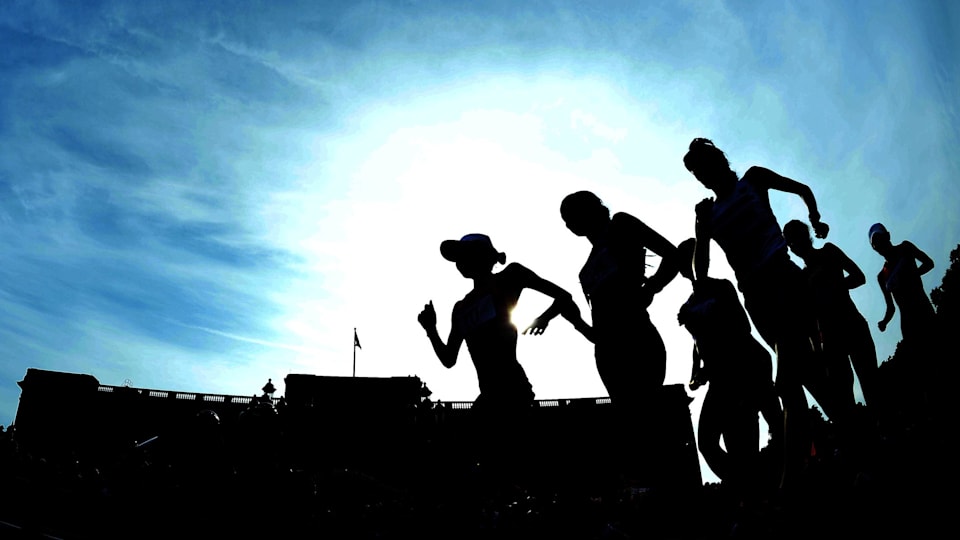Helping athletes to stay mentally fit
On the eve of World Mental Health Day, the International Olympic Committee (IOC) emphasises the need to support athletes through the difficult times the world is currently facing, and highlights the initiatives it has put in place over the past two years to drive the conversation on mental health and improve athletes’ well-being.

With the COVID-19 pandemic turning athletes’ lives upside down all over the world, causing isolation from communities and putting their goals and dreams on hold, with the Olympic Games Tokyo 2020 and many other sports competitions postponed, athlete mental health has never been so important.
In a recent survey launched by the IOC, 32 per cent of the 4,000 athletes and entourage members who responded said that mental health is the biggest challenge they are currently facing. The IOC has taken this feedback on board and subsequently developed a number of extra resources to support athletes.
A series of webinars for athletes has been organised to help them cope with this unprecedented situation. One of them was entirely devoted to mental health, with the participation of Claudia Reardon, a sports psychiatrist who works with athletes from a range of sports at the University of Wisconsin and is part of the IOC Mental Health Working Group.
Additional resources are regularly made available to athletes and their entourage on the Athlete365 community, where in-depth advice from medical professionals and performance managers can be found, together with past and present Olympians sharing their own experience and tips on wellbeing.
In partnership with Intel, Athlete365 is also offering athletes a free, six-month subscription to Headspace, the meditation and sleep app which is proved to reduce stress and improve happiness.
Providing a framework for the Olympic Movement
The IOC has been leading the conversation on mental health for several years. In 2018, the IOC Medical and Scientific Commission established a Consensus Group of 20 experts, consisting of leading psychiatrists, psychologists, athlete representatives and sports medicine professionals.
They examined symptoms and mental health disorders that research suggests affect up to 35 per cent of elite athletes at some stage of their careers.
A number of the authors of the study have since joined the IOC Mental Health Working Group.
Additionally, an entire session was devoted to mental health at the International Athletes’ Forum in April 2019, and those discussions will lead to a Mental Health Toolkit for athletes, which is currently being created.
Working together to be #StrongerTogether
In May 2020, the IOC and WHO strengthened their longstanding collaboration by signing an agreement to demonstrate their shared commitment to promoting a healthy society through sport, and to contribute to the prevention of noncommunicable diseases by reducing risk factors such as physical inactivity, unhealthy diet and the harmful use of alcohol.
IOC President Thomas Bach and WHO Director General Tedros Adhanom Ghebreyesus
emphasised the importance of sport in mental and physical health, and called on governments to recognise its role in the post-coronavirus world.
In this connection, the IOC launched in March 2020 the #StayStrong, #StayActive, #StayHealthy campaign, to encourage people around the world to stay physically active in order to improve mental health, help beat negative thoughts, lower stress and depression, and strengthen the immune system.
Athletes led the way, and on Olympic Day, 23 June 2020, they took part in the biggest-ever digital workout, inspiring millions of people to stay active. On the same day, the IOC, the WHO and the United Nations (UN) launched a partnership to encourage individuals and communities around the world to take action to be #healthytogether. Partners and athletes will spotlight the collective effort and global collaboration needed to reduce the spread and impact of COVID-19.
Building on these efforts and recognising the importance of solidarity and unity during these difficult times, on 23 July 2020 the IOC marked one year to go until the start of the postponed Olympic Games Tokyo 2020 with the launch of the #StrongerTogether campaign. Activities for the campaign are digitally led and highlight the resilience and strength of the athletes as they prepare for the Games.